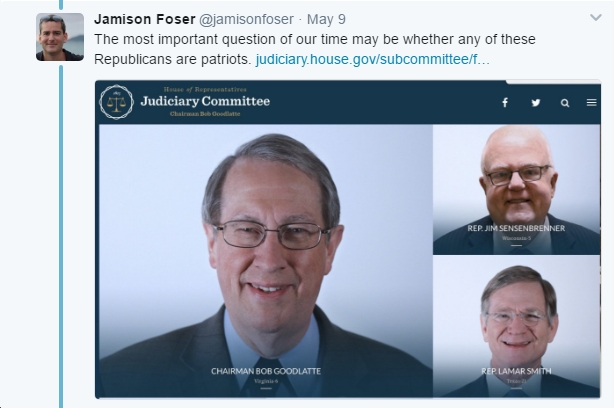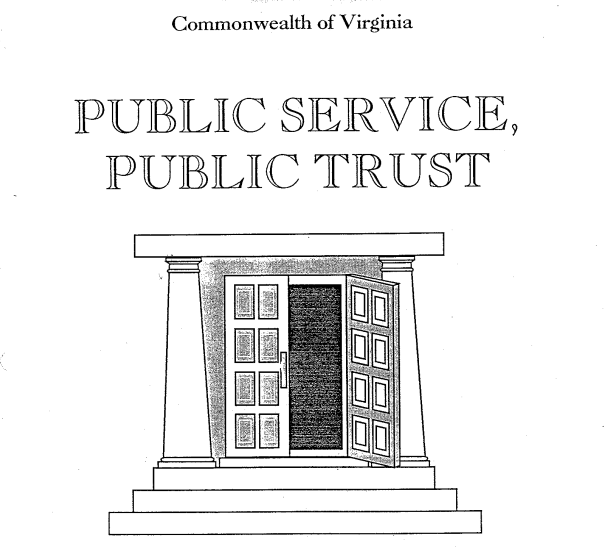
According to the adage, “all politics is local.” In that vein, let’s examine the tax deal cut between the President and the GOP Congressional minority and how it plays out politically with George Allen, Mark Warner and Jim Webb.
Allen: The big winner is former Senator George Allen, who voted for the Bush tax-spend-and-deficit policies at the center of the current debate. Those policies stood to be a big liability for Allen in 2012 given their complete failure, including running up enormous deficits. But now, a Democratic President of the United States and a Congress controlled by his party has done a U-turn and joined the Bush Conga line all the way through the 2012 elections. It is therefore no longer plausible for Democrats to claim the Bush policies were such a failure when they are now seen as having embraced those very same policies.
The economy, in terms of public perception, will either be seen as significantly better, roughly the same, or worse to some greater or lesser degree in 2012. Under any of these scenarios, former Senator George Allen will be stronger than he would have otherwise been, all other things being equal. If the public believes there has been no appreciable economic progress, this hurts Obama and the whole Democratic ticket. Should the public have a more rosy view of things economic, some of the credit now has to go to Republicans. But you say: If things don’t improve, this proves that Bushonomics was a dud as predicted years ago by Democrats. That’s true, but politically speaking, Democrats are surely not in a position to say “I told you so” after voting for it!
Bottom line: Like it or not, Allen gets a break here since a good deal of his vulnerability on past pro-Bush votes, both in a GOP primary and in the general election, has been downsized.
Warner: He is making a big push to be seen as a “deficit hawk”, something that historically has been good politics in Virginia. It is also consistent with Warner’s record as Governor, in which he pulled Virginia out the fiscal “ditch” Jim Gilmore left the state in.
But it is one thing to talk the talk – I have written a hundred commentaries of one type or other for several Virginia Governors on the issue of fiscal responsibility – but it is quite another to walk the walk. This tax deal adds many hundreds of billions of dollars to our debts and deficits. Thus, Warner has to make a tough decision. He can oppose the deal on red ink grounds, as the Tea Party hero, South Carolina Senator Jimmy The Mint, says he will do. This would help Warner shine his deficit-hawk bona fides, and moreover, his vote is not likely to be needed to overcome the proposed filibuster should it actually happen. The President and his Senate colleagues will smile knowingly and pretend it is okay with them, but Warner knows it will be a Rubicon moment of sorts — a small stream, not the big river, but significant nonetheless. Moreover, once Warner goes this route, he is a marked man, for the role of deficit hawk, while easy rhetorically, is going to get a lot tougher after the recent report from Obama’s fiscal commission.
So the bottom line question is this: If Warner votes for another huge spike in the deficit, does this do significant potential damage to his chances of emerging as credible deficit hawk? My take: breaking with the President and the Democratic leadership on the Bush tax cuts on the grounds of being a “deficit hawk” has a tricky risk vs reward equation. It’s an interesting play politically, but it isn’t clear that there is much to gain in it for Warner, who wants to be an inside player, not a rebel. Moreover, Warner is already on record as having wanted to extend the middle class tax cuts, which is the biggest deficit driver here. Moreover, his objection to extending the top bracket cuts was not on deficit grounds, because his plan was take the revenue generated from the higher rates and use it to fund new tax cuts. That is to say, Warner, the deficit hawk, is already on record with his own plan that raises the deficit by roughly what will happen in the Obama tax deal.
Bottom line: It’s a real tester for Warner, since he has been trying very hard to get some “deficit hawk” mojo going. But he also knows the business community wants this tax cut deal badly. If he votes NO and plants his “The Deficit Stops Here” flag, my hat is off to him; it’s the bold play, but once made, there is no turning back. If Warner asked my advice, I would say: go for it; by 2014, the fiscal responsibility card will play well if the economy has come back, and if the economy is still in a big funk, then no incumbent is getting re-elected anyway.
The “deficit hawk” persona fits Warner if he does it right, although his wealth makes it a potential problem which he might not yet appreciate given his comments to date on the Bowles-Simpson plan. Still, he has credentials on fiscal issues and is a very bright guy who is a quick study. He correctly senses a vacuum right now on fiscal matters. But jumping out of the airplane on your first big solo sky diving try is scary. Like I say, it is going to be a real tester for Mark.
Webb: Jimmy boy has no choice, he has to go with the President in my judgment, any other play doesn’t make sense to me. If Webb votes No, what is his reasoning? Webb isn’t going to morph into a deficit hawk, he isn’t a domestic-oriented Senator. This means Webb is going to be very supportive of military and national security expenditures, all those being big targets for the deficit hawks. So Webb can’t pull a Warner in my view.
That all being the case, the politics clearly point to Webb voting Yes. This way, Webb stays in good position with the Democratic leadership, the GOP folks will like it too, and he stands to claim some credit should the tax cut deal work like the President is hoping. Admittedly, Webb loses a talking point against Allen, but Webb, as I say, was never going to be counting on a domestic issue strategy to win re-election.
Bottom line: Backing the President is a lay-up for Webb, it is both the path of least resistance and his only political play right now. I believe he saw this from jump street, unlike Warner, who has always had the tougher political call.















